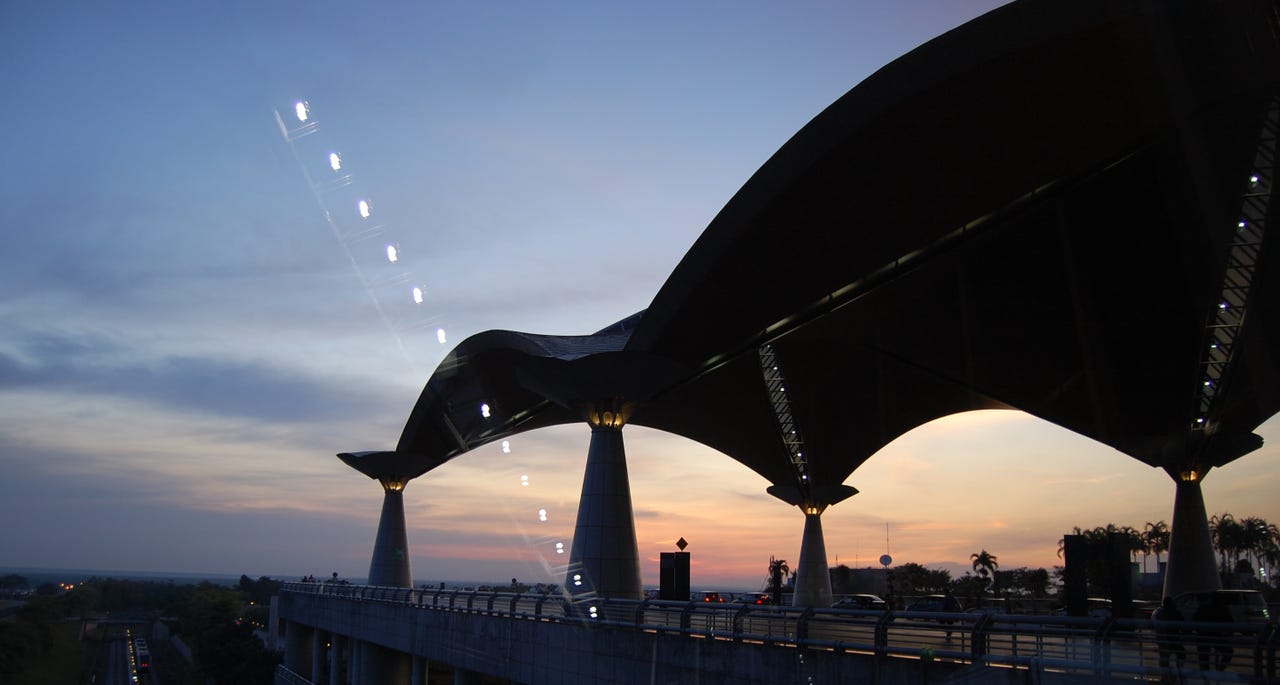Free Wi-Fi connections put business travellers at risk - Kaspersky


Kuala Lumpur International Airport, where most business travellers probably use the free Wi-Fi
About 30 percent of senior business managers "have been hit by cybercrime while abroad", according to a survey of 11,850 employed individuals who had travelled abroad for business and leisure in the past year. The research - which was done by the Toluna research agency for security company Kaspersky Lab - covered 23 countries including the USA and Russia.
Today's travellers often feel the need to connect. The survey says that 44 percent were online by the time they left the airport, and 82 percent of travellers used free but unsecured Wi-Fi services in airports, coffee shops, hotels etc. Basically, they'll connect to anything, if it's free.
"Business people assume their work devices are safer because of in-built security," says Kaspersky, but if not, it's not their problem. "One in four (and more than half of business leaders) believe it is the responsibility of the corporation, rather than the individual, to keep data safe. Indeed, the view from the top is that, if employers are to send staff overseas, they must accept any security risks that go with it."
If business leaders lose data while travelling, they'll blame the IT department for not making them use a VPN and/or other security precautions.
And today, you can't stop people from using connected devices, because they need information about their travel, hotel, insurance and other services, and probably their work obligations as well.
Kaspersky says: "The urge for business travellers to connect is complicated, and heightened, by their work pressures. For three in five (59 percent) senior managers, there is an expectation from employers to stay connected. In general, 27 percent of people are motivated to log on when abroad because they are worried about a specific work activity. This number jumps to 43 percent among senior managers, and 33 percent among mid-level executives."
The table below shows that 59 percent of business owners and top managers felt they were expected to stay connected with their work. This dropped to 45 percent for medium-level managers and specialists, and to only 26 percent for "other employed".
Further, it made no difference to most senior and mid-level managers whether they were travelling for business or leisure.
"Generally, the report shows people remain disinclined to make allowances for when they are outside the secure bounds of their home communications networks, often even when they are transmitting highly personal data and high confidential business information," Kaspersky concludes.
It puts this down to "a lack of understanding of the risks of cybersecurity on unsecured public Wi-Fi networks" and "a fundamental lack of options (or well-known options)" for making secure connections.
See: Kaspersky Lab International Travel Report: the urge to connect at any cost is putting international travellers' data at risk. Further details are available from prhq@kaspersky.com